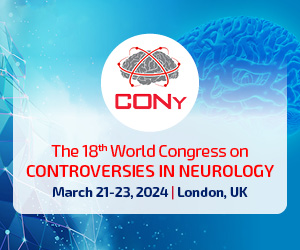Cognitive impairment in neoplastic disease and paraneoplastic neurological syndromes
Karolina Popławska
 Affiliation and address for correspondence
Affiliation and address for correspondenceCognitive impairment constitutes important clinical problem in neoplastic diseases, especially in paraneoplastic neurological syndromes. Chemotherapy of breast and hormonotherapy of prostate cancers are the main causes of cognition dysfunction, connected directly with neoplasm. Clinical presentation is diverse and includes deterioration of concentration, memorizing, thinking, and verbal memory in breast cancer patients and impairment of concentration, memory, visuospatial abilities and executive functioning in prostate cancer ones. It is necessary to emphasize that the patients are at advanced age, with numerous comorbid conditions and suffer from advanced cancer. Moreover, usually patients manifest anxiety, dysphoria and depression induced by neoplasm diagnosis. All above-mentioned factors can influence on cognitive functions. Paraneoplastic neurological syndromes (PNS) are remote effects of cancer, not caused directly by invasion of the tumour or its metastases. Changes in cognition are caused by limbic encephalitis (LE) and paraneoplastic cerebellar degeneration (PCD). These paraneoplastic syndromes are usually associated with small cell lung cancer, thymoma, breast, ovarian, testis cancer and Hodgkin’s disease. Presentation of specific clinical symptoms and signs including memory loss, seizures and psychiatric symptoms, detection of paraneoplastic antibodies and abnormalities in neuroimaging examination help to establish the diagnosis. Paraneoplastic cerebellar degeneration includes clinical syndromes connected with different tumours and differing from each other in the course of disease and immunological reactions. The symptoms develop within weeks or months with cerebellar syndrome. Executive dysfunctions include planning, verbal fluency, working memory, abstract reasoning and set-shifting. Difficulties with orientation and visuospatial memory may also occur. Diagnosis, like in LE, is established when paraneoplastic antibodies are detected, neuroimaging changes are found and typical for PCD clinical picture is present. Changes in cognition accompanying neoplastic diseases are significant clinical problem not only in differential diagnosis of dementia, but also it they should be taken into account in interdisciplinary care of above-mentioned group of patients.








